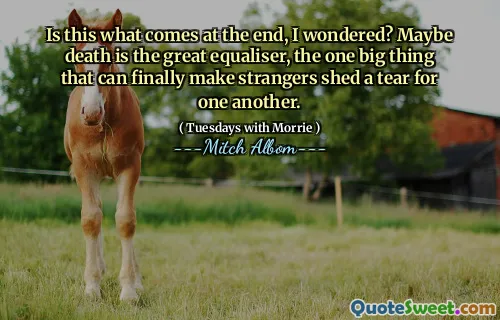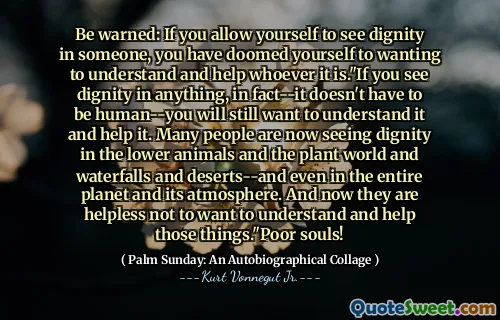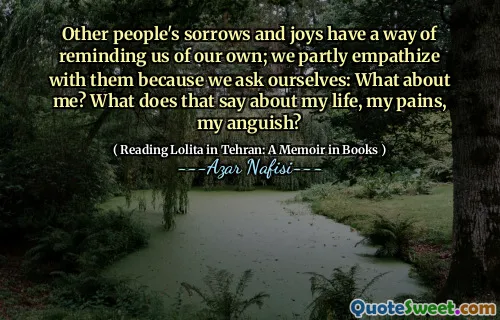
Suicide is not a choice, it is what is left when everything else fails.
This quote poignantly captures the tragic reality many individuals face when overwhelmed by despair. It reframes suicide not as an impulsive decision made lightly, but rather as a final recourse when all other options for relief or resolution seem to have been exhausted. The emotionally charged message invites empathy and understanding by highlighting that suicidal thoughts or actions often emerge from a place of profound suffering and hopelessness. It challenges the stigma that can surround suicide by reminding us that it's not a mere act of will but a response to unbearable pain, where the usual avenues for coping and healing have been tried but failed.
Reflecting on this quote compels us to think about the importance of mental health support systems, compassionate listening, and intervention before reaching such an irreversible point. It underscores the need to cultivate environments where people feel safe to express their struggles and where effective help is accessible. It also serves as a sobering reminder about the complexity of mental health issues and the significance of patience and nonjudgmental support.
In a broader societal context, this quote is a call to action for communities, healthcare providers, and individuals alike to recognize the signs of emotional distress early and to offer compassion and understanding. It encourages us to move away from simplistic views and toward a more nuanced and humane approach in addressing the root causes of suicide. Ultimately, it is a powerful statement about the gravity of despair and the critical necessity for empathy and intervention.










